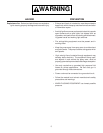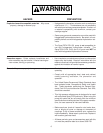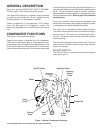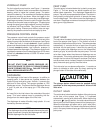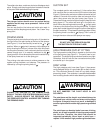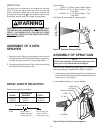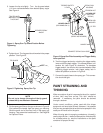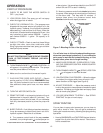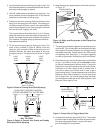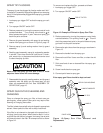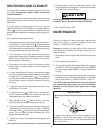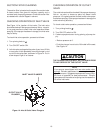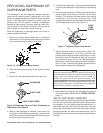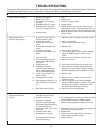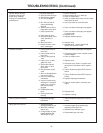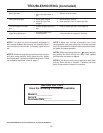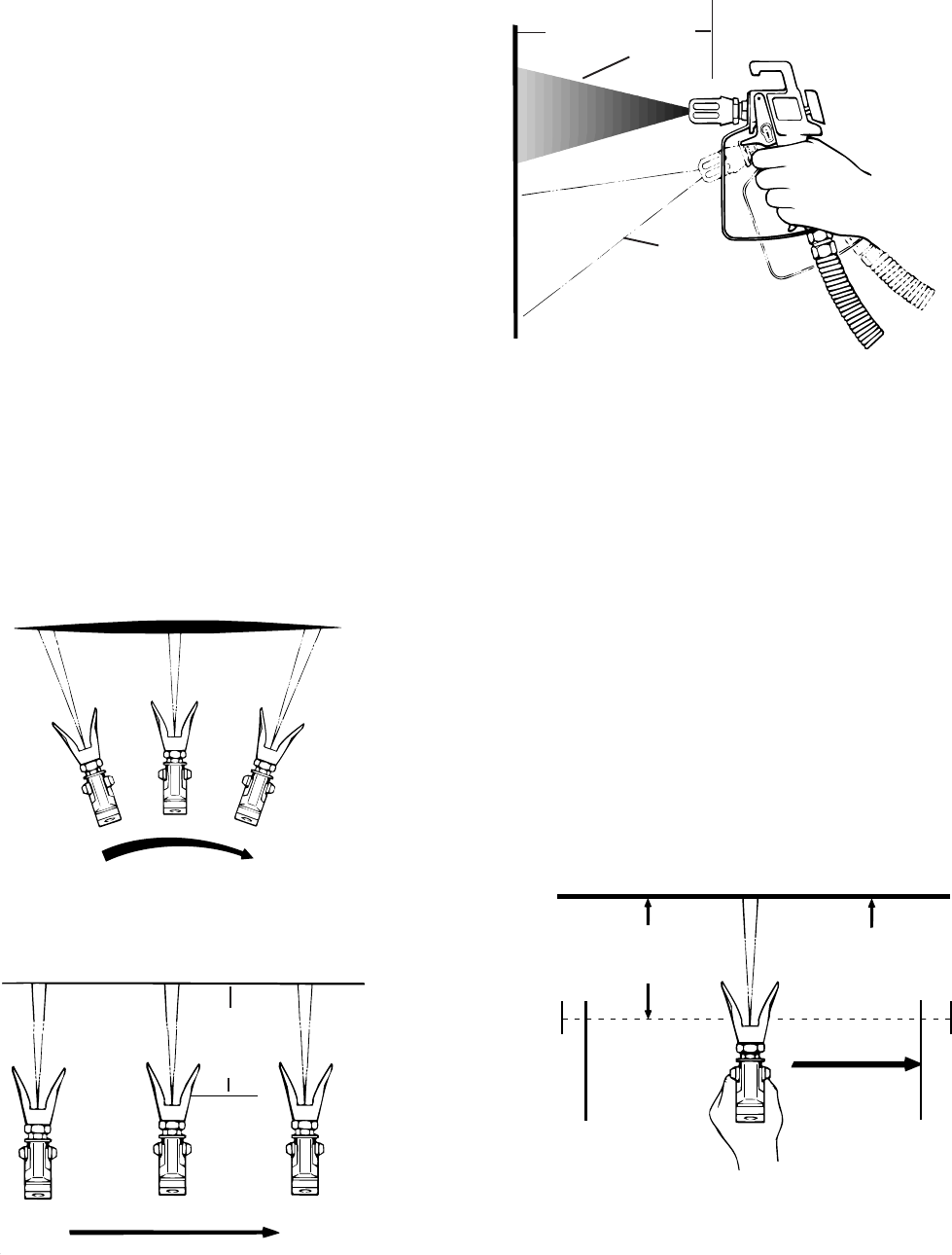
13
2. Avoid sharp bending and kinking of the paint hose. The
paint hose and electric cord should be kept clear of traffic
and sharp cutting edges or objects.
3. Use the lowest pressure possible when spraying. Too
much pressure shortens equipment life. It also causes
faster than normal wear on the spray tip.
4. Determine the best spraying distance (distance from
spray tip on the spray gun to the work). If the spray gun
is held too close to the work, you will have paint buildup
that will cause sags and runs. If the spray gun is held too
far from the work, “fogging” will result.
The correct distance should be about 10 to 12 inches.
Keep this distance for the entire length of the stroke. Of
course, the shape of some work surfaces will not permit
this. However, the same spraying distance should be
kept whenever possible.
5. Do not move the spray gun by flexing your wrist. The
result of this is shown in Figure 8. Rather, move the
spray gun with a smooth stroke of the entire arm and
shoulder. Maintain the same arm speed all the way
through the stroke. The result of this is shown in Figure
9.
LIGHT
COAT
HERE
HEAVY
COAT
HERE
LIGHT
COAT
HERE
WRONG
WAY TO SPRAY
Figure 8.-Result of Flexing Wrist While Spraying.
EVEN COAT ON WORK THROUGH
STROKE MOVEMENT OF ENTIRE ARM
STEADY
ARM
SPEED
RIGHT
WAY TO SPRAY
APPROXIMATELY
10 TO 12 INCHES
WORKING
DISTANCE
Figure 9.-Result of Smooth Arm Stroke and Steady,
Even Speed While Spraying
APPROXIMATELY
10 TO 12 INCHES
WORK
PULL
TRIGGER
EVEN
STEADY
STROKE
RELEASE
TRIGGER
Figure11 -Proper Way to Trigger Spray Gun.
9. Overlap each stroke by about 40% to 50%. The overlap
will insure a paint coating that is uniform across the work.
One way to get good overlap is to point the spray
gun at the edge of the last stroke.
Figure 10.-Right and Wrong ways to Hold Spray Gun
Toward Work.
7. The spray gun should be triggered (turned off and on) on
each stroke. This will save paint and avoid paint buildup
at the end of the stroke. However, do not trigger during
the middle of a stroke. This will result in an uneven spray
and splotchy work. See Figure 11 for proper triggering
on a left-to-right stroke. Reverse for a right-to-left stroke.
8. Move the spray gun at a rate of speed that is comfortable
for you. If you have to move your arm too fast in order
to prevent excessive paint buildup, either (1) lower the
pressure by turning the pressure control knob counter-
clockwise, or (2) use a spray tip with a smaller hole. If
you have to move your arm too slow in order to get a
good coating, either (1) raise the pressure by turning the
pressure control knob clockwise, or (2) use a spray tip
with a larger hole. You should always keep the spray
gun moving when making a stroke. Slowing down in one
place will cause sags or runs.
6. Keep the spray gun perpendicular to the work as shown
in Figure 10.
APPROXIMATELY
10 TO 12 INCHES
RIGHT
WAY
WRONG
WAY



